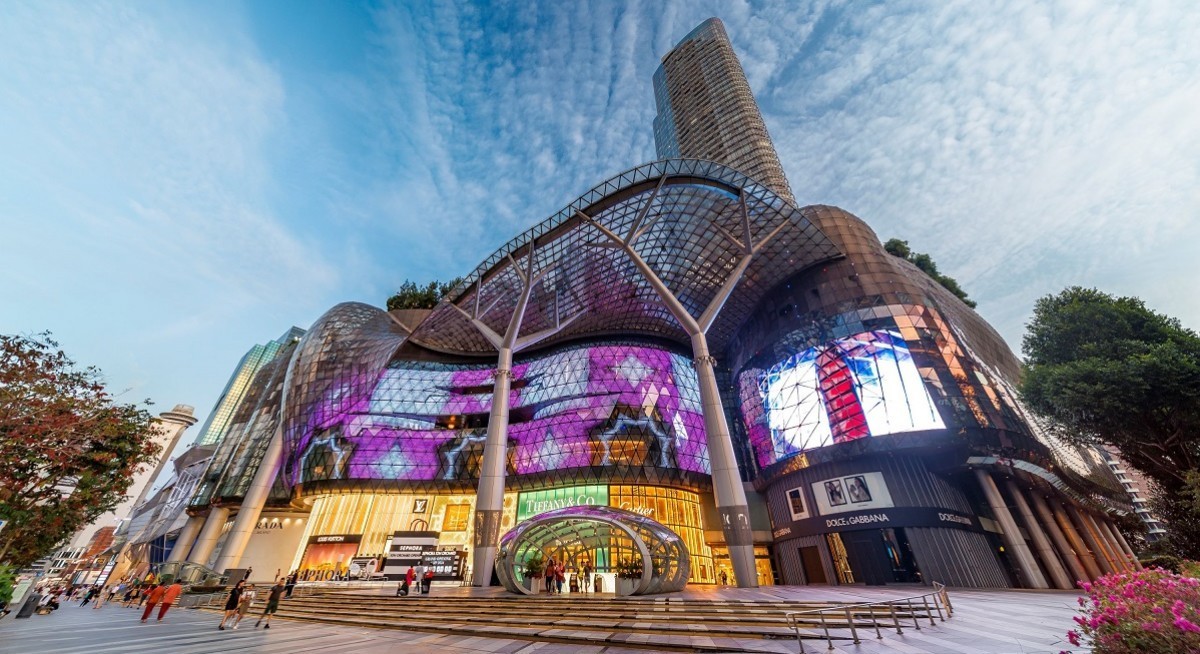CICT is also enhancing another asset, the IMM Building, positioned as Singapore's largest outlet mall. CICT has achieved committed occupancy of 100% for Phases 1 and 2 of the asset enhancement initiative, and the retail space was handed over to the new tenants in 4QFY2024, such as Birkenstock, Le Creuset and a new food court Makan Street.
Phases 3 and 4 of the AEI are expected to be completed in 3QFY2025. CICT's capex of $48 million is expected to generate ROI of 8%, estimates Koh.
CICT, according to Koh, is seeing room to increase rental income at ION Orchard by reconfiguring retail space, especially in the upper levels 3 and 4. With a focus on keeping this as an iconic premium mall, CICT plans to refresh the tenant mix on the ground floor, including creating more duplexes for luxury brands. The AEI would be staggered over two years in 2025 and 2026.
Upgrading works is being done at Gallileo, an office in Frankfurt, valued at $383 million. This property is rented out to the European Central Bank and will contribute more meaningful in terms of rental income in the coming FY2026, says Koh, which figures that CICT could consider divesting.
See also: StarHub’s weak FY2026 guidance leads DBS to review call while Morningstar flags overvaluation
Koh likes CICT's "strong" balance sheet with stable cost of debt and leverage at 38.7%. Management expects the cost of debt to remain stable at about 3.4% in 2025.
CICT, according to Koh, could consider acquiring the remaining 55% of the integrated development CapitaSpring, valued by him at $1.78 billion. CICT has a call option on this asset which expires next November.
Koh describes this REIT as "solidly anchored to home base Singapore. CICT will continue to strengthen its Singapore portfolio through acquisitions and AEIs to increase its overall resiliency."
See also: IFAST share price dips despite strong earnings 4QFY2025 announcement; DBS maintains ‘buy’ at $12
According to Koh, CICT is keen on expansion in integrated developments, which are more resilient throughout economic cycles.
"The office and residential components in integrated developments provide a constant flow of shoppers to the retail component," he says.
He believes that CICT can weather second-order impact from reciprocal tariffs, as 94.7% of its portfolio value resides in Singapore, where reciprocal tariff for imports into the US is the lowest at 10%.
While CICT does not have direct exposure to the export sector. Koh warns that given Singapore's open economy, GDP growth would be affected by a broader slowdown caused by the uncertain global trade environment.
All in, Koh has raised his DPU forecasts marginally by 1.1% for 2025 and 1.5% for 2026 due to a lower average cost of debt of 3.4%, down from 3.6% in 2024.
CICT units changed hands at $2.16 as at 10.05 am.




